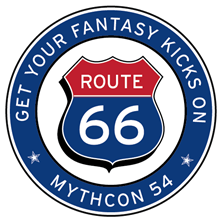Abstract
I would like to thank the Council of Stewards for their kind invitation to speak at this year’s conference, with special thanks to Janet Brennan Croft, Leslie Donovan, Alicia Fox-Lenz, and Lynn Maudlin. I was thrilled when Alicia sent me the invitation to attend as guest scholar, especially when she said my recent bibliographic scholarship was a reason. I am happy to be able to join you all this year to celebrate one of The Mythopoeic Society’s series of 50th anniversary events, specifically, the launch of Mythlore. The journal, due to its longevity and focus on mythopoeic literature, is one of the most important sources on Tolkien scholarship. In addition, the Mythlore Index Plus by Janet Brennan Croft and Edith Crowe, which makes data on all Mythopoeic publications easily available online, is a fantastic tool. I know that every time I do a bibliographic search for a Tolkien project, I find that some of, if not the, earliest work on the topic appeared in Mythlore, which should not be surprising giving that the MLA indexes 422 articles on Tolkien in the journal!
My talk today is about bibliographic scholarship and fanzines, two great things that go great together! I must start with a confession though: becoming a fan of bibliographic scholarship was a shocking mid-career change for me. I never had a course in bibliography and methods because my first Master’s was in Creative Writing in an English department that exempted us from the “academic” bibliography class and my second was in English at the Bread Loaf School of English, a summer graduate program developed for teachers, that took a different approach to graduate studies. When I eventually got to my doctoral program, there were minimal course requirements, and I did not seek out a bibliography course because I shared the common attitude that having to read essays on literature is tedious and boring compared to actually reading literature. When I was hired for a tenure-track job at East Texas State University, one of my senior colleagues, Dr. James “Bo” Grimshaw, a bibliographer, was shocked to learn I had never had such a class and suggested (perhaps jokingly, perhaps not) that I take his course. What changed my attitude toward bibliographic scholarship was Tolkien!
Creative Commons License

This work is licensed under a Creative Commons Attribution-NonCommercial-No Derivative Works 4.0 International License.


